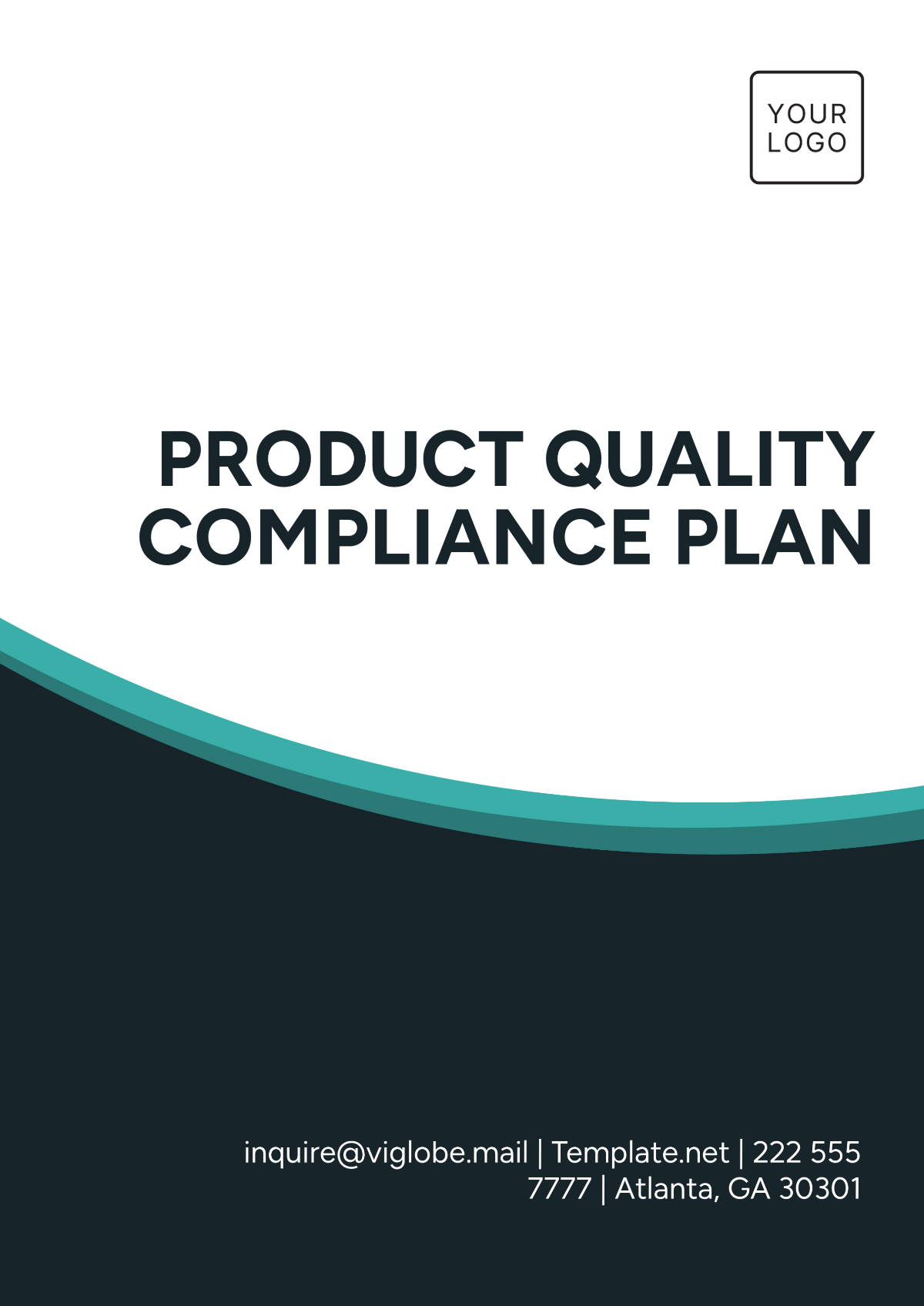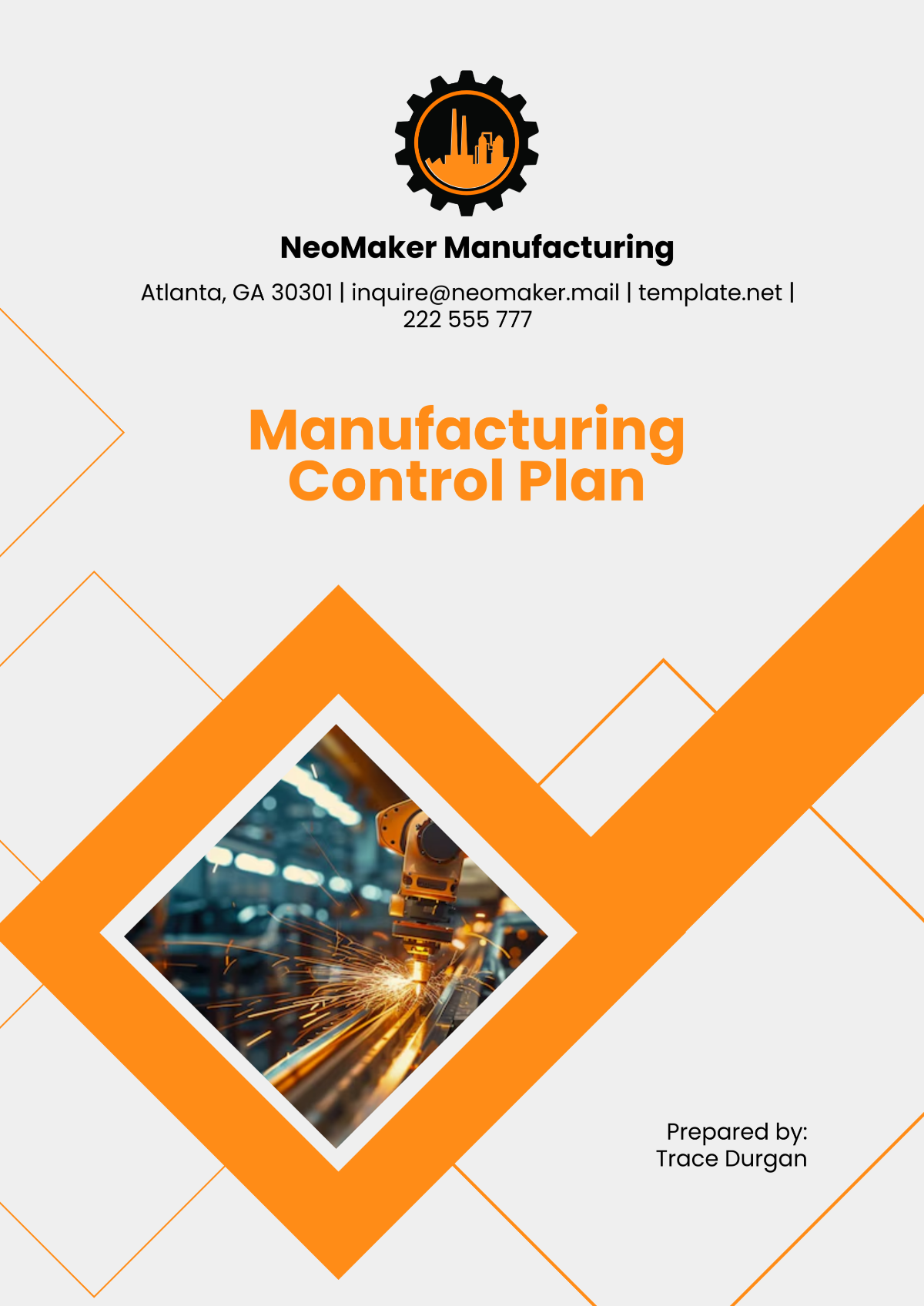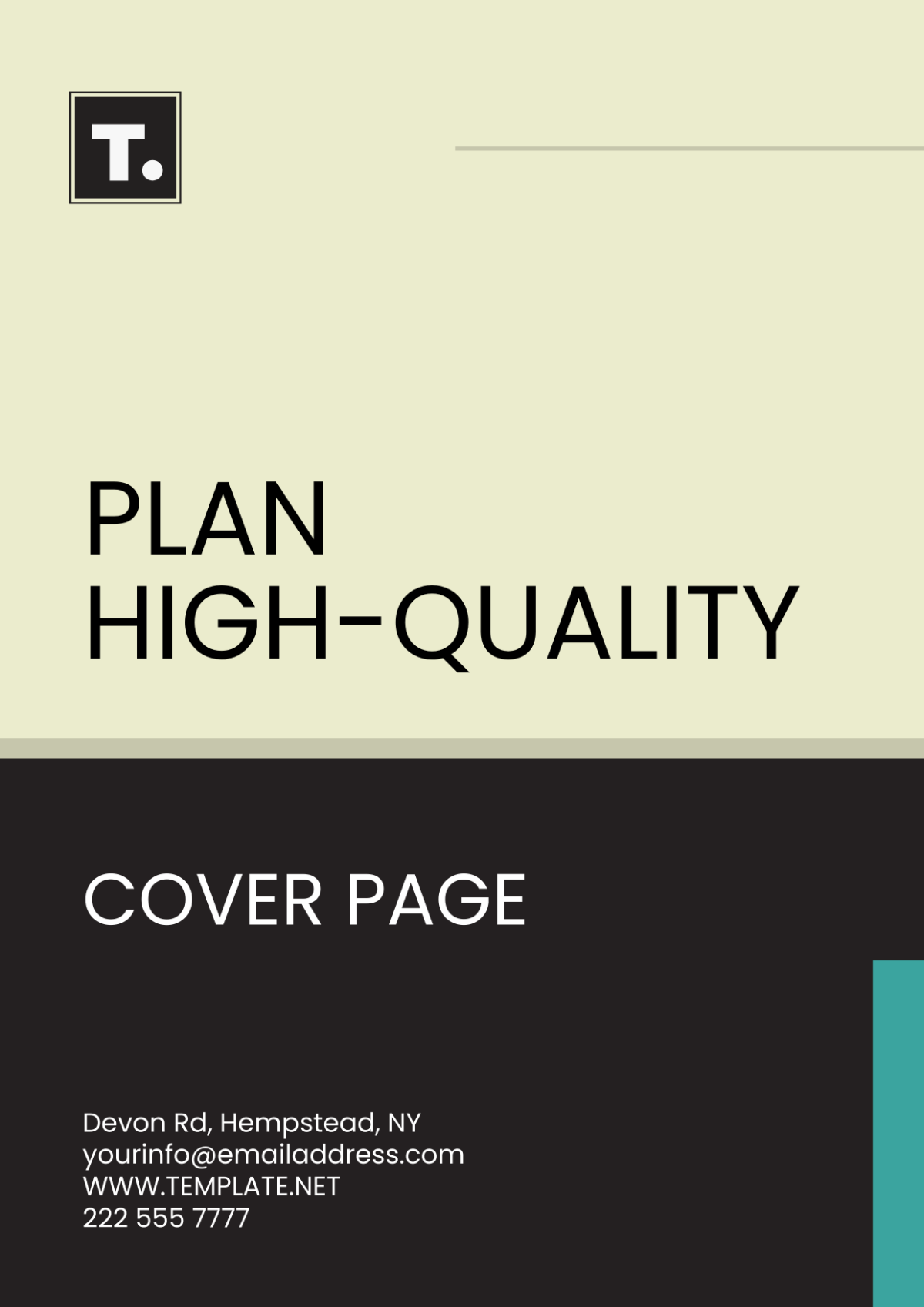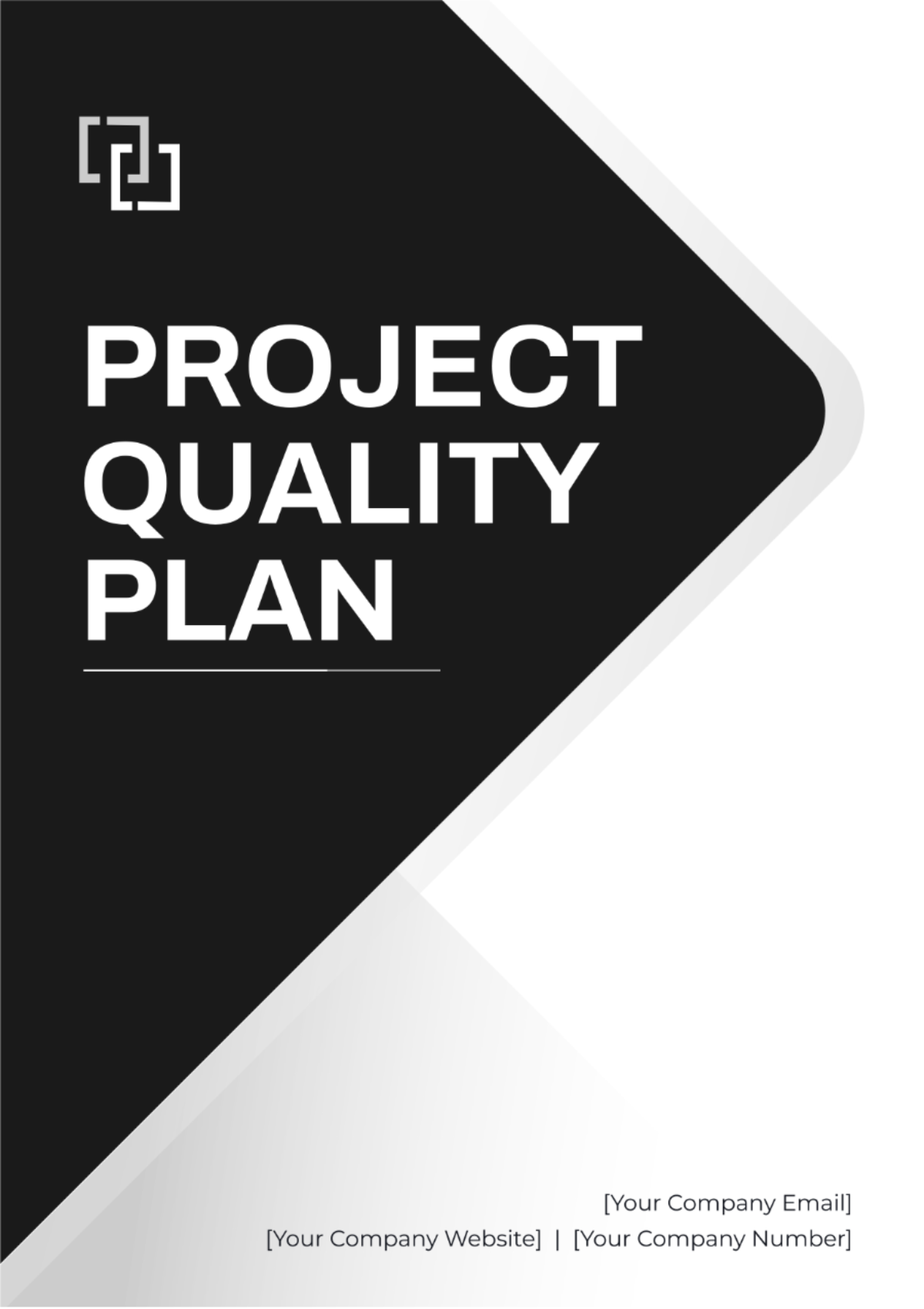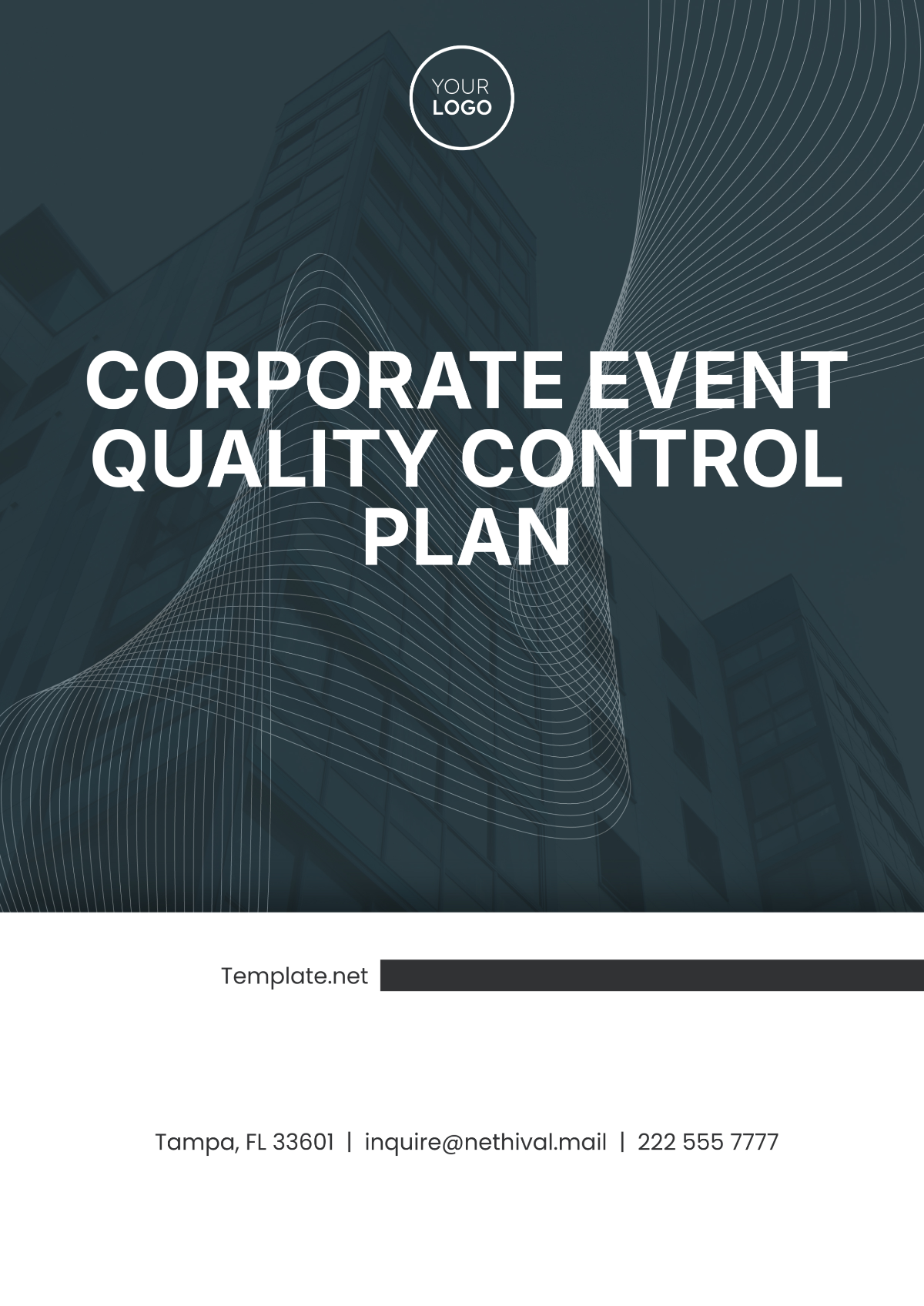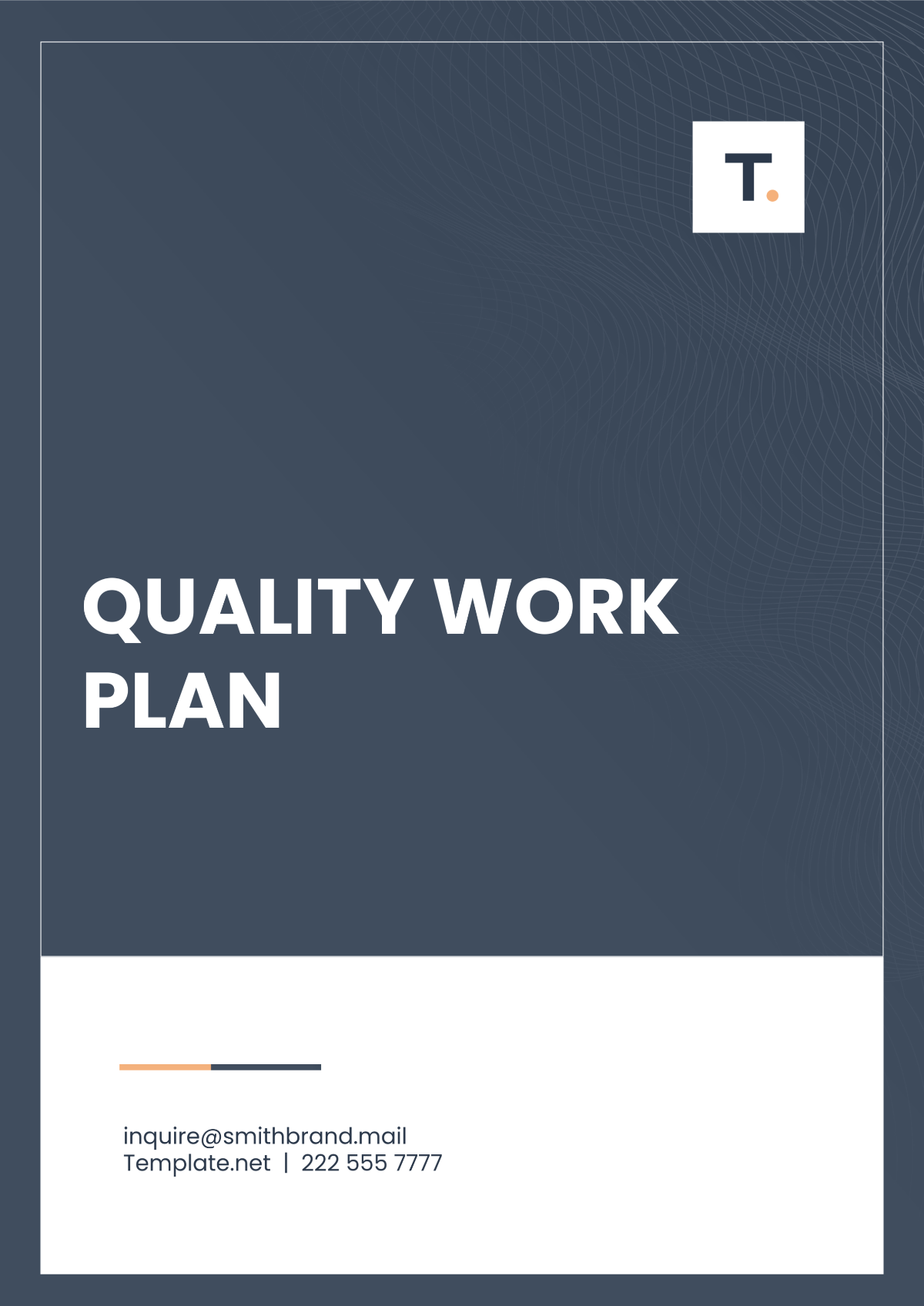Project Quality Plan
Prepared by : | [Your Name] |
Company Name : | [Your Company Name] |
Department : | [Your Department] |
Date : | [Date] |
I. Introduction
In this Project Quality Plan for [Your Company Name], our primary objective is to ensure that all construction activities adhere to the highest standards of quality and safety. By implementing stringent quality control measures, we aim to deliver a final product that not only meets but exceeds the expectations of our clients and stakeholders. This document outlines the procedures, responsibilities, and resources necessary to achieve our quality objectives throughout the duration of the project.
II. Quality Management Framework
A. Quality Policy
[Your Company Name] is committed to delivering construction projects that meet or exceed industry standards and client expectations.
Quality is everyone's responsibility. Each team member is accountable for upholding quality standards in their respective roles.
B. Quality Objectives
Ensure compliance with all applicable building codes, regulations, and standards.
Minimize rework and defects through proactive quality assurance measures.
Enhance client satisfaction by delivering projects on time and within budget while meeting quality requirements.
C. Organizational Structure
Project Manager: Oversees the implementation of the Quality Plan and ensures alignment with project goals.
Quality Manager: Responsible for developing and implementing quality control procedures, conducting inspections, and addressing non-conformities.
Construction Team: Executes construction activities in accordance with established quality standards.
III. Quality Control Procedures
A. Materials Management
In the realm of materials management, our strategy revolves around meticulous procurement and verification processes to ensure that all construction materials meet the required standards and specifications. Upon receipt, thorough material testing and inspection procedures are conducted to identify any deviations from quality requirements. By maintaining strict control over materials, we aim to mitigate the risk of subpar products compromising the integrity of the project.
B. Construction Processes
Our approach to construction processes involves the development and implementation of standardized operating procedures (SOPs) to ensure consistency and quality across all phases of the project. These SOPs serve as a guide for our construction team, outlining best practices and protocols for achieving optimal results. Additionally, quality checkpoints are strategically integrated at critical stages of construction to verify compliance with design specifications and industry standards, thereby minimizing errors and ensuring the delivery of high-quality workmanship.
IV. Training and Continuous Improvement
A. Training Programs
To cultivate a culture of quality within our workforce, we provide comprehensive training programs focused on imparting knowledge of quality policies, procedures, and best practices. Through these training sessions, construction personnel gain the skills and awareness necessary to uphold our commitment to quality throughout every aspect of their work. Furthermore, we encourage ongoing professional development opportunities to empower our team members to continuously improve their capabilities in quality management within the construction domain.
B. Lessons Learned
At the core of our continuous improvement strategy lies the practice of capturing lessons learned from each project. Through post-project reviews, we evaluate both successes and challenges encountered during the construction process, identifying areas for improvement and opportunities for growth. By incorporating feedback and recommendations into future projects, we foster a culture of continuous learning and enhancement, ensuring that our quality performance evolves in alignment with industry standards and client expectations.
V. Risk Management
In order to proactively address potential risks to project quality, we implement a comprehensive risk mitigation and contingency planning strategy. This involves identifying, assessing, and prioritizing risks that could impact project objectives. Action-oriented measures are then developed and executed to mitigate these risks, utilizing a combination of preventive actions and contingency plans.
Regular risk reviews and updates ensure that our risk management strategies remain effective and responsive to changing project conditions. By taking proactive steps to anticipate and address risks, we minimize disruptions and uphold our commitment to delivering high-quality construction projects on schedule and within budget.
VI. Approval

[Approver's Name]
Head of Quality Control
[Date]
